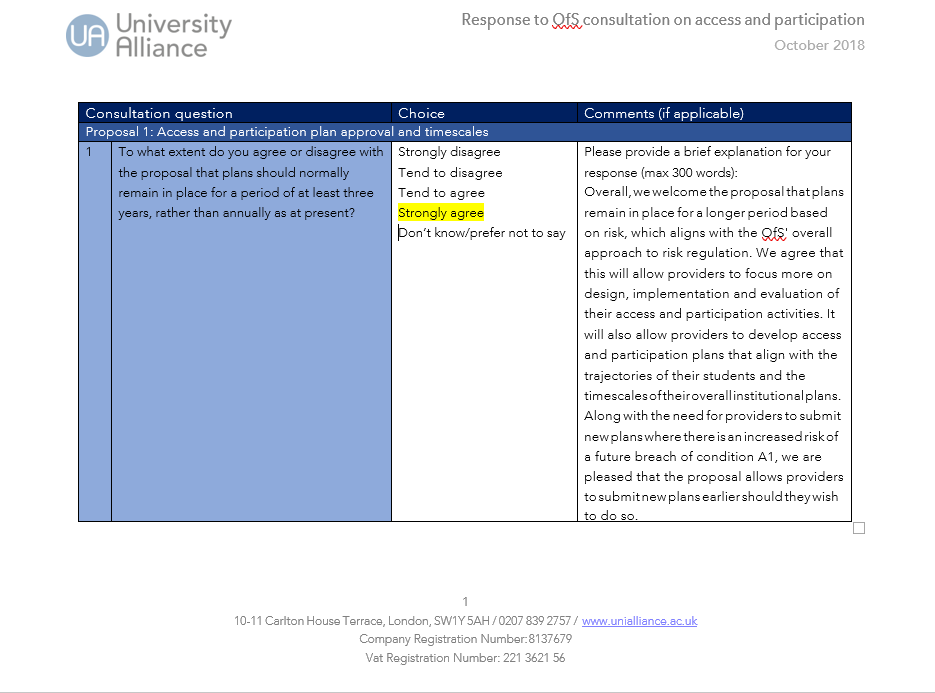University Alliance has responded to the Office for Students’ consultation on A New Approach to Regulating Access & Participation in English Higher Education.
Liz Bromley, Acting Chief Executive of University Alliance said:
“We agree with the direction of travel.
“It’s right all universities are scrutinised, held to account and more transparent. Higher education as a whole still needs to raise its game on access, participation and progression. OfS is laying the foundations here for a tougher regime to give true equality of opportunity for disadvantaged and underrepresented groups in England.
“There is hard work ahead next year to get the new system 100% right – particularly for institutions like University Alliance members targeting first generation intakes through their technical and professional courses.
“The collapse in part-time and mature student populations is a massive challenge for us all. The beefed-up system will be key to tackling this failure, including protecting targeted investment through premium funding, National Collaborative Outreach Programme and potential programmes.
“Annual impact reports is vital to tracking each institution’s progress but they must enable the public to compare like with like. Institutions face completely different challenges and take in very different intakes. We look forward to seeing the proposed templates in the new year.
“The onus is on universities to put in place high-impact strategies and plans – but a stable, sustainable funding regime in future is absolutely essential. Politicians of all parties claim to prioritise social mobility. The Post-18 Education & Funding Review and the full government Spending Review must enable us to better join-up with schools and further education, particularly on cost-of-living finance.
Background
Office for Students published its consultation A New Approach to Regulating Access & Participation in English Higher Education on 7th September 2018: [here].
University Alliance’s consultation response can be found by clicking [here].
The OfS is setting higher expectations for institutions to:
· work with schools in disadvantaged neighbourhoods to improve pupils’ results and encourage them to consider higher education as a realistic path for them.
· improve entry rates for underrepresented groups, for example young people from poorer families and places.
· reduce drop-out rates for students from disadvantaged backgrounds.
· tackle disparities in degree attainment and employment outcomes between different groups, such as students of different ethnicities and those with disabilities.
Other changes proposed in the consultation included:
· tougher requirements for providers to show that their efforts to improve access and participation are actually working – and if not, to change their approach
· reducing the frequency of written submissions that most providers must make to the OfS so that they can focus more on implementation, although they must continue to report on progress every year
· increasing scrutiny on providers who are not achieving their goals or being ambitious enough in their approach
· producing new indicators on the make-up of providers’ student bodies, so that the OfS can more effectively hold them accountable for under representation




